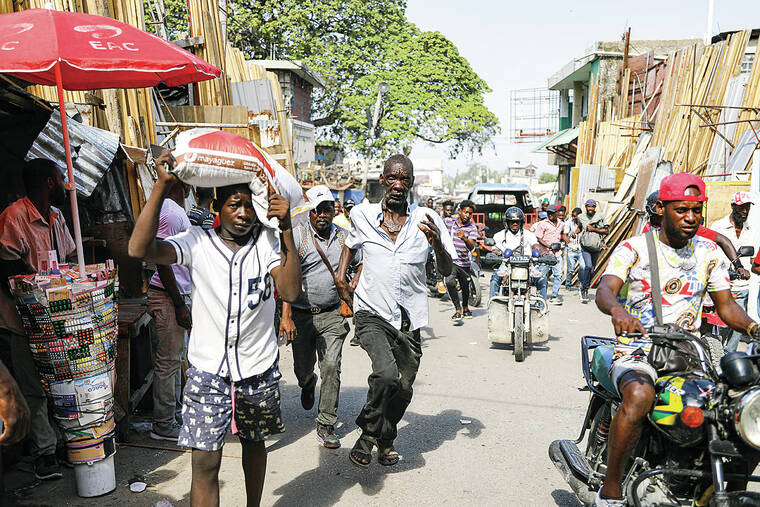Foreigners trapped in violence-torn Haiti wait desperately for a way out
SAN JUAN, Puerto Rico — Dozens of foreigners, including many from the U.S. and Canada, are stranded in Haiti, desperately trying to leave the violence-torn country where anti-government gangs are battling police and have already shut down both of the country’s international airports.
They were in Haiti for reasons ranging from adoptions to missionary and humanitarian work. Now, they are locked down in hotels and homes, unable to leave by air, sea or land as Haiti remains paralyzed by the mayhem and the gangs’ demands that Prime Minister Ariel Henry resign.
“We are seriously trapped,” said Richard Phillips, a 65-year-old from the Canadian capital, Ottawa, who has traveled to Haiti more than three dozen times to work on projects for the U.N., USAID and now, a Haitian nonprofit called Papyrus.
After arriving in Haiti in late February, Phillips flew to the southern coastal city of Les Cayes to teach farmers and others how to operate and repair tractors, cultivators, planters and other machinery in an area known for its corn, rice, peas and beans.
Once his work was done, Phillips flew to the capital, Port-au-Prince, only to find that his flight had been canceled. He stayed at a nearby hotel, but the gunfire was relentless, so moved on to a safer area.
“We are actually quite concerned about where this is going,” he told The Associated Press by phone. “If the police force collapses, there’s going to be anarchy in the streets, and we might be here a month or more.”
Scores of people have been killed in the gang attacks that began Feb. 29, and more than 15,000 people have been left homeless by the violence.
Earlier this week, Haiti’s government extended a state of emergency and nightly curfew to try and quell the violence, but the attacks continue.
Gangs have burned police stations, released more than 4,000 inmates from Haiti’s two biggest prisons and attacked Port-au-Prince’s main airport, which remains closed. As a result, the prime minister has been unable to return home after a trip to Kenya.
Phillips said he has exhausted all options to leave Haiti by air, noting that a helicopter operator couldn’t get insured for such a flight and a private plane pilot said that approach would be too risky. As for trying to trek to the neighboring Dominican Republican: “It’s possible we could walk miles and miles to get to a border, but I’m sure that’s dangerous as well.”
Despite being stuck, Phillips said he remains calm.
“I’ve been shot at many times in Haiti and have bullet holes in my truck,” he said. “Personally, I’m kind of used to it. But I’m sure other people, it’s quite traumatic for them.”


